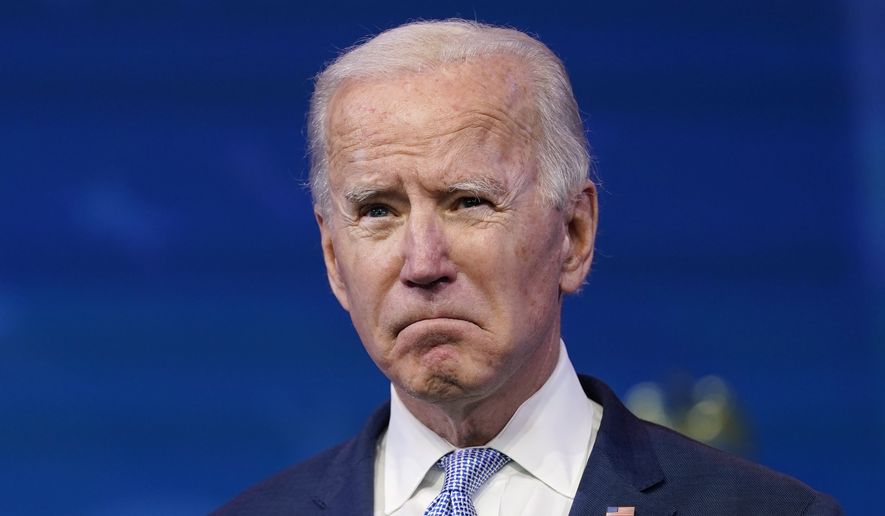OPINION:
It is a media commonplace that Joe Biden faces a uniquely daunting set of challenges. Some have gone so far as to compare his challenges with those of Abraham Lincoln, conveniently forgetting Reconstruction, World War I, the Great Depression, World War II, the Cold War, the difficult passage of civil rights legislation, Vietnam and 9/11, to name but a few of the many serious challenges the country has faced.
What are President Biden’s supposed daunting challenges? They are said to be the pandemic, economic recovery, systemic racism, global warming and a gauntlet of foreign policy issues. Let’s look at these one by one, beginning with foreign policy.
Every president faces foreign policy challenges. Every single president in the last 40 years has had to deal with Russia, China, North Korea, Iran and Middle East peace, to name the most pressing problems. Didn’t Donald Trump face exactly these same challenges? What’s new?
What’s new is that President Trump’s policies made some of these problems easier, not harder to manage. Mr. Trump correctly changed the decades-long focus of American policy toward China, which Mr. Biden has now only to follow. Mr. Trump also left Mr. Biden with a far easier path to Middle East peace; all Joe Biden has to do is not revert to the forty-year failed policy of requiring Palestinian assent at every step of the process.
Mr. Trump also had to deal with Russian provocations, all the while under the cloud of a baseless investigation into collusion. And above all, Donald Trump bequeathed to Joe Biden a far stronger and better equipped military than he inherited from Barack Obama. Who would trade Mr. Biden’s challenges for those Mr. Trump faced?
Let’s for a moment set aside the debate about whether global warming is an urgent crisis. Assuming it is, Joe Biden governs a country whose greenhouse gas emissions are lower, not higher than they were four years ago — unlike the rest of the world. Why should this be an especially difficult foundation on which to build?
As to racism, again let’s set aside whether racism is actually systemic. Even so, would anyone assert that racism is worse today than ever before? To the contrary, the claim is that racism has always been America’s problem. Think the 1619 project. There is no doubt that considerable progress has been made over the past 50 years in addressing issues related to race.
And given the recent steps which both local police forces and private sector businesses have taken in the aftermath of George Floyd’s murder, who could say otherwise? How does Joe Biden have a worse hand to play than his predecessors?
Finally, let’s consider the pandemic and economic recovery, which are closely linked. Is it really credible that Joe Biden faces a tougher problem today than Donald Trump did in the fourth year of his term? Then, COVID-19 was a surprise, little was known about it, therapies were unknown or untested, and there was no vaccine on the horizon. Donald Trump and the pharmaceutical industry did the hard work of developing a vaccine in record time. What remains now is to deliver it, which is not a conceptual problem but a logistical one.
Once the vaccine has been widely delivered in the coming months, the economy is likely to rebound to approximately its pre-COVID-19 level. All the Biden administration has to do is not adopt new policies which destroy the incentives for businesses to hire workers (the $15 minimum wage) and for the unemployed to return to work (lengthy and overly generous extensions of unemployment insurance).
Recovery requires only a temporary bridge — not for everyone and not for all states — but for businesses and individuals who have lost their livelihoods due to government mandated shutdowns. Within the first six months of his term Joe Biden can preside over this happy outcome which was bequeathed to him in large part by this predecessor.
This is not to say that the president faces no challenges. Every president does. But let’s not pretend the country is in worse shape than it really is. This pretense sets the bar too low for the new administration. And it is the soil in which new government programs are created and grow.
• Jeff Bergner is an adjunct professor in the Batten School at the University of Virginia. He previously served as staff director of the Senate Foreign Relations Committee and as assistant secretary of State.




Please read our comment policy before commenting.